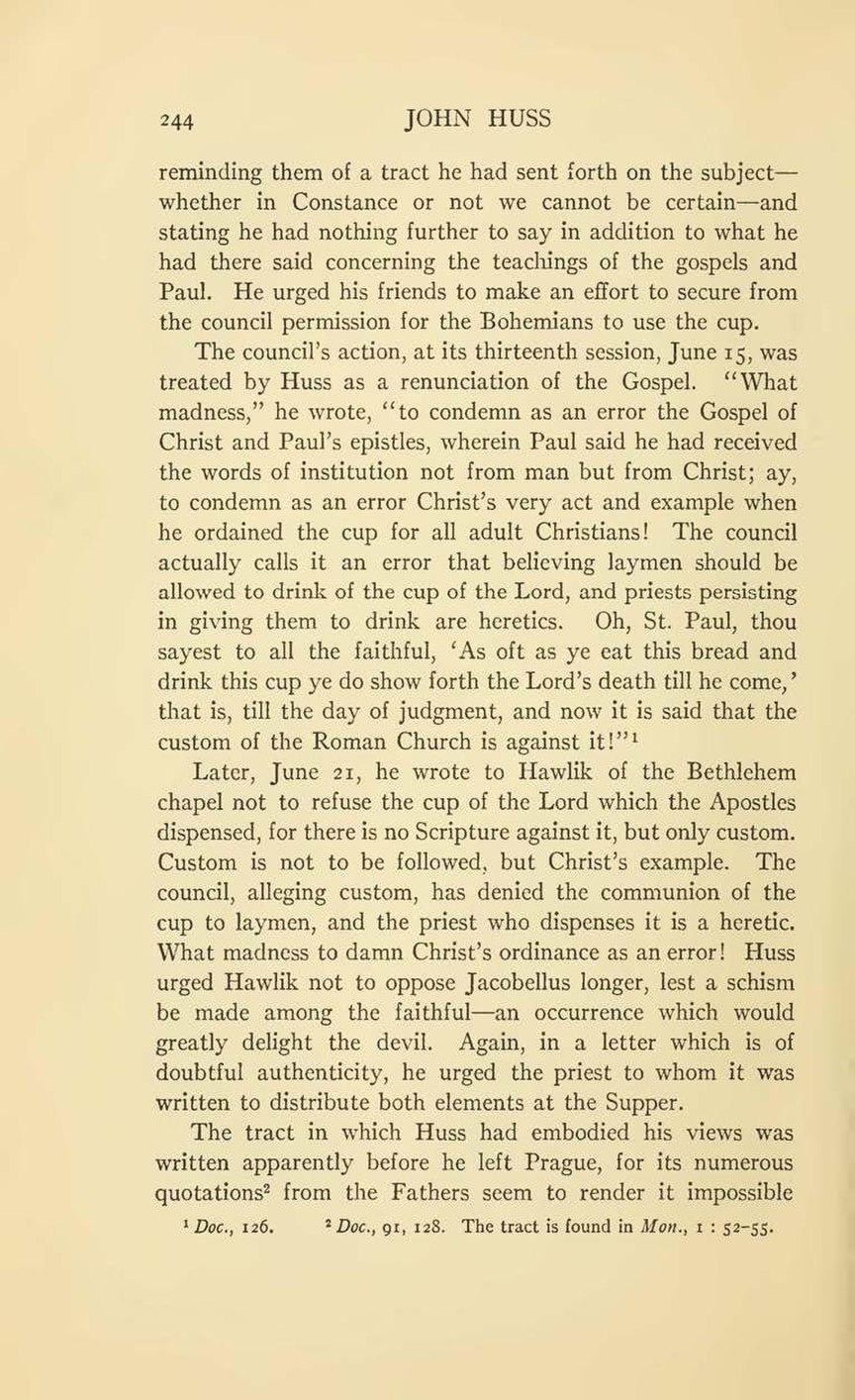reminding them of a tract he had sent forth on the subjectwhether in Constance or not we cannot be certain—and stating he had nothing further to say in addition to what he had there said concerning the teachings of the gospels and Paul. He urged his friends to make an effort to secure from the council permission for the Bohemians to use the cup.
The council’s action, at its thirteenth session, June 15, was treated by Huss as a renunciation of the Gospel. “What madness,” he wrote, “to condemn as an error the Gospel of Christ and Paul’s epistles, wherein Paul said he had received the words of institution not from man but from Christ; ay, to condemn as an error Christ’s very act and example when he ordained the cup for all adult Christians! The council actually calls it an error that believing laymen should be allowed to drink of the cup of the Lord, and priests persisting in giving them to drink are heretics. Oh, St. Paul, thou sayest to all the faithful,’As oft as ye eat this bread and drink this cup ye do show forth the Lord’s death till he come,’ that is, till the day of judgment, and now it is said that the custom of the Roman Church is against it!”[1]
Later, June 21, he wrote to Hawlik of the Bethlehem chapel not to refuse the cup of the Lord which the Apostles dispensed, for there is no Scripture against it, but only custom. Custom is not to be followed, but Christ’s example. The council, alleging custom, has denied the communion of the cup to laymen, and the priest who dispenses it is a heretic. What madness to damn Christ’s ordinance as an error! Huss urged Hawlik not to oppose Jacobellus longer, lest a schism be made among the faithful—an occurrence which would greatly delight the devil. Again, in a letter which is of doubtful authenticity, he urged the priest to whom it was written to distribute both elements at the Supper.
The tract in which Huss had embodied his views was written apparently before he left Prague, for its numerous quotations[2] from the Fathers seem to render it impossible
